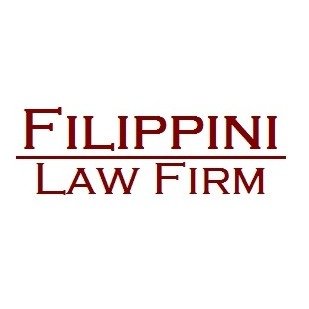
Best Faith-Based Law Lawyers in Illinois
Share your needs with us, get contacted by law firms.
Free. Takes 2 min.
Or refine your search by selecting a city:
List of the best lawyers in Illinois, United States

About Faith-Based Law in Illinois, United States
Faith-Based Law in Illinois refers to the intersection between religious beliefs and legal matters as they relate to individuals, families, and organizations practicing their faith. While Illinois law is secular and governed by state and federal constitutions, there are circumstances where religious principles impact legal actions and decisions, especially in areas such as marriage, divorce, employment, education, and nonprofit governance. Faith-Based Law does not replace civil law but may arise in cases where individuals or groups seek to act in accordance with their religious beliefs while complying with state requirements.
Why You May Need a Lawyer
You may require legal assistance related to Faith-Based Law in Illinois for a variety of reasons. Common situations include:
- Ensuring religious organizations or houses of worship meet state and federal nonprofit requirements
- Handling disputes or agreements involving religious customs in family matters such as marriage, divorce, and child custody
- Advising on religious exemptions in areas such as education, employment, or health care
- Responding to claims of religious discrimination or seeking accommodations at work or in schools
- Navigating issues related to land use, zoning, and religious property
- Managing the internal governance and bylaws of religious organizations in a way that aligns with both faith and Illinois law
- Complying with mandatory reporting laws while honoring religious confidentiality
- Resolving disputes about charitable donations or bequests made to religious institutions
An attorney familiar with both civil and religious considerations can help ensure your rights are protected while complying with all applicable laws.
Local Laws Overview
Illinois state law requires that all legal matters comply with the United States Constitution and Illinois Constitution, which guarantee freedom of religion and prohibit laws respecting the establishment of religion. However, religious organizations and individuals often interact with state law in unique ways. Some key aspects include:
- Religious Freedom and Restoration Act (IL RFRA): Illinois law provides broad protection to exercise religion, unless the government demonstrates a compelling interest and uses the least restrictive means.
- Marriage and Dissolution: Illinois recognizes civil marriage and divorce. However, parties to a religious marriage might seek additional religious legal documents (such as a get in Jewish divorce or talaq in Islamic divorce), which may require coordination with both civil and religious authorities.
- Employment Discrimination: Illinois law protects employees from religious discrimination. Employers, including religious organizations, may have specific rights and responsibilities under state and federal law.
- Nonprofit and Tax Law: Faith-based entities must comply with state nonprofit incorporation and reporting requirements as well as federal tax-exempt regulations, including those specific to religious organizations.
- Education: Religious schools must meet state educational standards while retaining the right to teach their faith. Students may have rights to religious accommodations in public schools under Illinois law.
- Zoning and Land Use: Federal laws like the Religious Land Use and Institutionalized Persons Act (RLUIPA) and Illinois local ordinances affect how religious organizations can use property.
Frequently Asked Questions
What is the legal status of faith-based arbitration agreements in Illinois?
Faith-based arbitration, such as handling disputes based on religious principles, is generally recognized as long as all parties voluntarily enter the agreement and it does not conflict with public policy or statutory rights under Illinois law.
Can religious organizations discriminate in hiring for leadership roles?
Under state and federal laws, religious organizations usually have what is known as the ministerial exception, which allows them to select leaders based on religious criteria. Other employment decisions may be subject to anti-discrimination laws.
Are religious divorces recognized by Illinois courts?
Religious divorces are not legally recognized for state purposes. To dissolve a marriage legally in Illinois, parties must obtain a civil divorce. Religious divorces may be necessary for faith-based reasons but do not substitute for the civil process.
What protections exist for students seeking religious accommodations in Illinois schools?
Illinois law requires public schools to make reasonable accommodations for religious observances, such as time off for holidays or the right to wear religious clothing, unless it causes undue burden.
How can faith-based nonprofits maintain both religious integrity and legal compliance?
Nonprofits should establish clear bylaws that reflect their mission and comply with both Illinois nonprofit regulations and federal tax-exempt requirements. Consulting with a lawyer familiar with both nonprofit and faith-based issues is recommended.
Do religious organizations need to pay state sales tax?
Qualified religious organizations may be eligible for state sales tax exemptions. Applications must be submitted to the Illinois Department of Revenue and meet specific criteria.
Are clergy in Illinois mandatory reporters of child abuse?
Yes, clergy are included among the list of mandatory reporters under the Illinois Abused and Neglected Child Reporting Act, but confidential communications may be subject to special rules.
How does Illinois law treat religious property disputes?
Illinois courts generally avoid deciding religious doctrine but can resolve questions related to property titles, ownership, and finances using neutral legal principles.
Can religious symbols be displayed on private property in Illinois?
Yes, individuals and organizations have the right to display religious symbols on private property, subject to applicable zoning and homeowners association rules.
How does Illinois handle religious exemptions for vaccinations?
Illinois law allows for religious exemptions to certain vaccination requirements for students, but the process requires submission of specific paperwork and may be subject to change based on public health needs.
Additional Resources
If you require more information or assistance with Faith-Based Law issues in Illinois, you may find these organizations helpful:
- Illinois Attorney General - Civil Rights Bureau
- Illinois Department of Human Rights
- Illinois Department of Revenue - Exempt Organizations
- United States Department of Justice - Civil Rights Division
- Interfaith Legal Services Clinics (various universities and nonprofits offer community legal aid)
- Illinois State Bar Association - Lawyer Referral Service
- Local religious councils and denominational legal support teams
Next Steps
If you need legal assistance with a Faith-Based Law issue in Illinois:
- Identify the specific area of concern, such as family law, nonprofit formation, employment, or religious freedom
- Contact an attorney with experience in both Illinois state law and religious legal matters
- Gather any relevant documents, such as organizational bylaws, correspondence, contracts, or court papers
- Prepare a list of questions and your goals for legal guidance
- Consider reaching out to state agencies or nonprofit organizations for additional support or referrals
Taking these steps early can help ensure that your rights are protected and that your legal issues are handled with both expertise and respect for your faith values.
Lawzana helps you find the best lawyers and law firms in Illinois through a curated and pre-screened list of qualified legal professionals. Our platform offers rankings and detailed profiles of attorneys and law firms, allowing you to compare based on practice areas, including Faith-Based Law, experience, and client feedback.
Each profile includes a description of the firm's areas of practice, client reviews, team members and partners, year of establishment, spoken languages, office locations, contact information, social media presence, and any published articles or resources. Most firms on our platform speak English and are experienced in both local and international legal matters.
Get a quote from top-rated law firms in Illinois, United States — quickly, securely, and without unnecessary hassle.
Disclaimer:
The information provided on this page is for general informational purposes only and does not constitute legal advice. While we strive to ensure the accuracy and relevance of the content, legal information may change over time, and interpretations of the law can vary. You should always consult with a qualified legal professional for advice specific to your situation.
We disclaim all liability for actions taken or not taken based on the content of this page. If you believe any information is incorrect or outdated, please contact us, and we will review and update it where appropriate.
Browse faith-based law law firms by city in Illinois
Refine your search by selecting a city.








